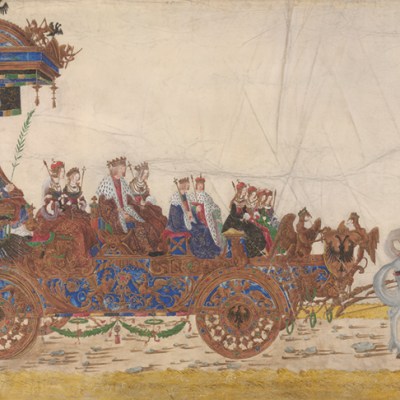Three people are sitting at a table, and you are standing near them. One of them is speaking Dutch. Another is better dressed than you. The third is opining in Italian about Pliny the Elder’s Natural History. ‘It’s shit,’ he says. You are thinking about how to respond – whether to defend the old Roman, or tell the truth, which is that you haven’t read him much – when a bar fight breaks out across the room. You are not in graduate school. You are in the 16th century. And you are a character in the video game Pentiment.
Pentiment, the new role-playing game by Obsidian Entertainment and Xbox Game Studios (released on Xbox and PC), is set in the make-believe Bavarian village of Tassing. The Reformation and Renaissance are both happening, but they aren’t happening here. In Innsbruck, Albrecht Dürer is painting Emperor Maximilian I. In Wittenberg, Martin Luther is publishing perplexing theses about indulgences. Tassing, meanwhile, is living in the past. The Benedictines of Kiersau Abbey are still taxing the peasants into the ground and controlling their access to the land. Old women on the margins of the town invoke the pagan goddess Perchta instead of any saint. The Rathaus, where the town council is supposed to meet, is not even finished.
Yet it is out here, in the sticks, that the painter Andreas Maler finds himself. Maler is completing his years of apprenticeship, or Wanderjahre. Marriage and a career await him in Nuremberg as soon as he can finish his masterpiece, an illuminated manuscript in the abbey’s scriptorium. As Maler, you can outfit yourself with one of several pasts: a bibliophile legal scholar with years of experience in Italy, a drunken hedonist stumbling back from Flanders, and so on. I chose the former but regretted it, since I played the entire game with the growing suspicion that somewhere else, in a parallel game-universe very close to mine, the other Maler was having more fun. Whoever you are, progress on your painted masterpiece will be derailed as the violent drama of parochial Tassing – murder, magic and mob violence – pulls you in.
Still from Pentiment. Photo: Xbox Game Studios
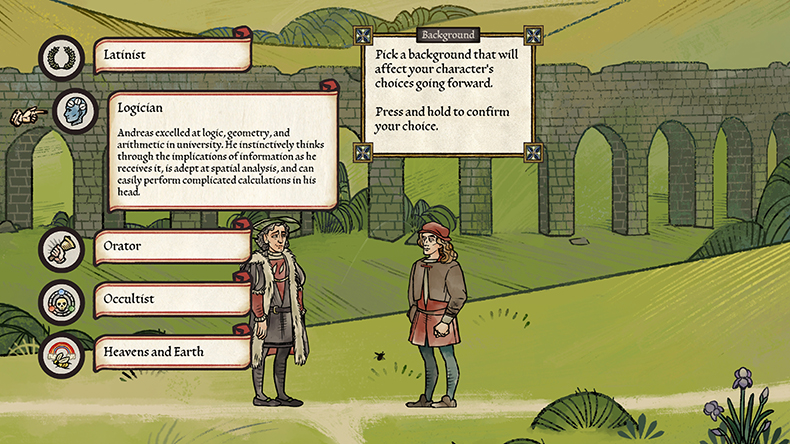
Pedants will find points for protest. A masterpiece was a prerequisite for admission to some early modern guilds, so an illuminated manuscript produced in a Benedictine scriptorium cannot technically be a masterpiece. Albrecht Dürer did paint Maximilian I in 1518, but that was in Augsburg instead of Innsbruck. But far more often, the details – scattered throughout the game like historical easter eggs – spark delight. Once, Andreas teaches the local printer, Claus Drucker, about a better technique for printing woodcuts: ‘I would suggest running this in two passes, with the background elements in a lighter ink.’ Another time, he uses a monk’s marginalia in a manuscript in the abbey to help solve a murder. One of my favourite subplots was a play on Natalie Zemon Davis’s book The Return of Martin Guerre (1983). And how many video games advance the plot with ominous notes scribbled in a gothic, German Fraktur?
Still from Pentiment. Photo: Xbox Game Studios
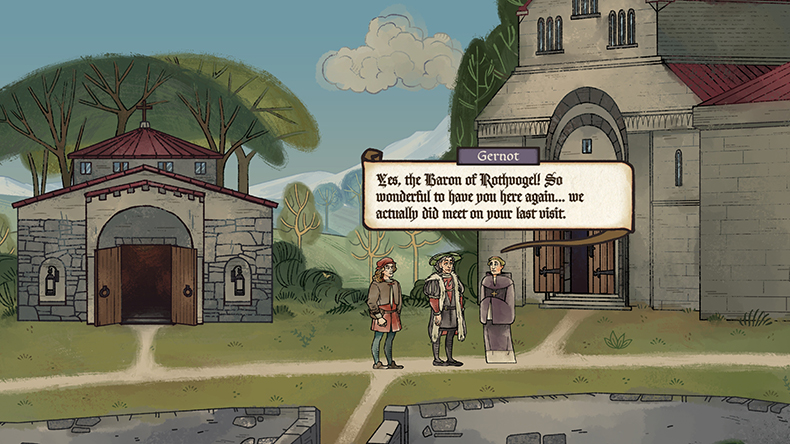
More than art and literature, though, Pentiment is about land economy under feudalism. In 1525, inspired by a popularised Lutheranism, tens of thousands of peasants took up arms against perceived injustices before being crushed by far better armies. One of their demands, circulated in the notorious Twelve Articles, was that it should ‘be free to every member of the community to help himself to such firewood as he needs in his home’. The people of Tassing think the same thing, and Maler makes their grievance into art. When we first glimpse his magnum opus, a book of hours that is more 15th-century France than 16th-century Germany, it shows peasants stalking a forest. When we see it later in finished form, there’s a fence. Social reality has intruded into painting.
The sidelining of art in Pentiment makes for some frustrating gameplay. Instead of drawing or painting, you choose whether to eat bread or cheese, you decide what to tell Tassing’s residents in exchange for information, or you snoop around. In one of Pentiment’s less inspired mini-games, you break firewood into smaller pieces. As you do, you wish for a version of the game where the visual wit and the colour, so fully in abundance, were more at your character’s fingertips.
Still from Pentiment. Photo: Xbox Game Studios
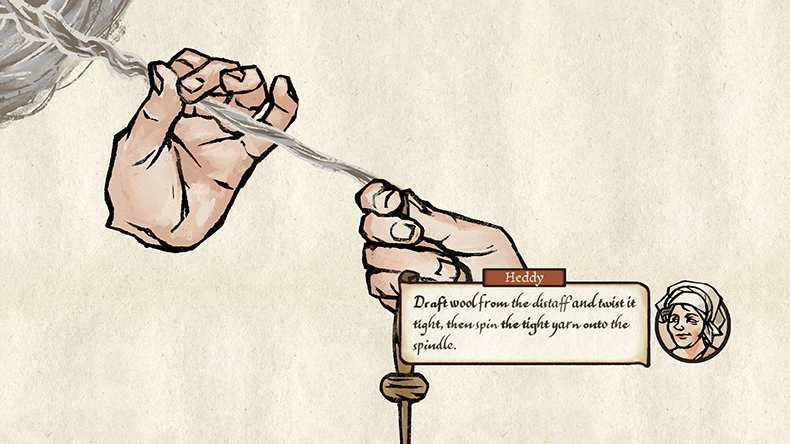
Instead, the art is the game itself. If the creators are more imaginative than Andreas can be, then so be it, because the game design is playfully beautiful. You jump from scene to scene across the pages of an illuminated manuscript. You pass the time across the spinning wheel of a book of hours, keyed to the offices in a monastic day. You loll on a ship of fools, and you chat with Beatrice and Socrates in a pavemented dreamworld. The nuns speak in medieval black-letter font while the printer and his family speak in typeface, which first appears backward, a fantastic pun on the way that printers set type to make books in the Renaissance. ‘So if you want to make art that matters,’ one character tells Andreas, ‘make it about something important. And make it for someone who cares.’ Andreas, alas, ends up jaded and pessimistic about this possibility. Thankfully, the makers of Pentiment have not.
Still from Pentiment. Photo: Xbox Game Studios
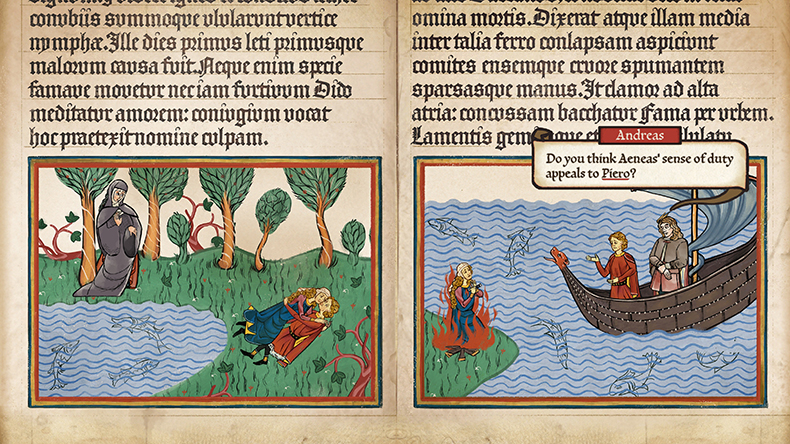
Pentiment is out now for PC and Xbox.



